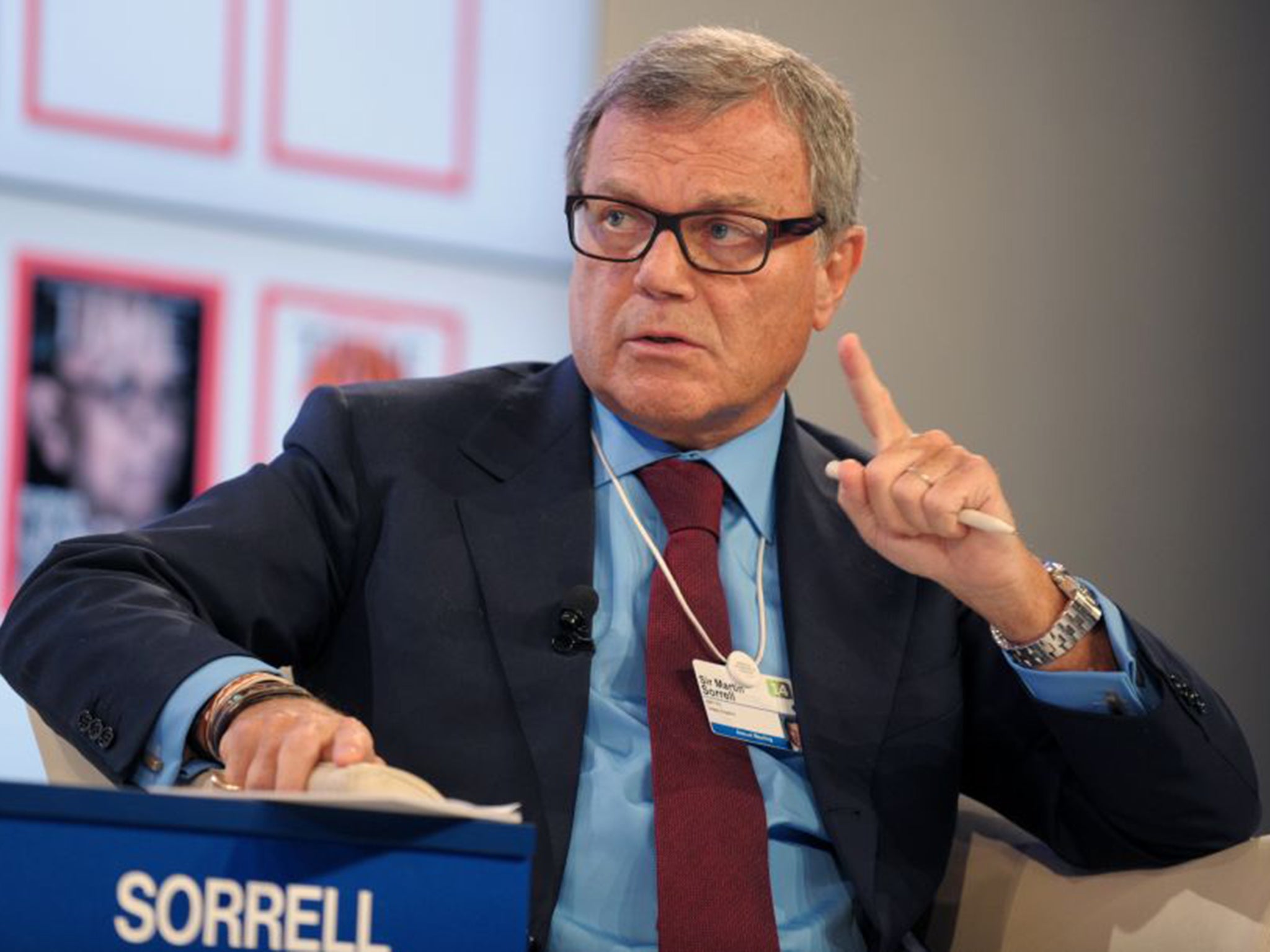The sordid pay packets of FTSE fat cats prove big business is still a man’s game even Theresa May can’t sort out
Imagine, if you can, even sitting in a meeting when this gargantuan wodge was mooted as the one you so richly deserve, just for being brilliant old you


Your support helps us to tell the story
From reproductive rights to climate change to Big Tech, The Independent is on the ground when the story is developing. Whether it's investigating the financials of Elon Musk's pro-Trump PAC or producing our latest documentary, 'The A Word', which shines a light on the American women fighting for reproductive rights, we know how important it is to parse out the facts from the messaging.
At such a critical moment in US history, we need reporters on the ground. Your donation allows us to keep sending journalists to speak to both sides of the story.
The Independent is trusted by Americans across the entire political spectrum. And unlike many other quality news outlets, we choose not to lock Americans out of our reporting and analysis with paywalls. We believe quality journalism should be available to everyone, paid for by those who can afford it.
Your support makes all the difference.Perhaps like myself, a strong reason belying your omission from the FTSE top 10 best paid CEOs list is that – unlike Sir Martin Sorrell, CEO of WPP – you’d find it hard to accept an annual pay deal of just over £70m. Not with a straight face, anyhow.
Sorrell’s jackpot, exasperating the High Pay Centre think tank this week, has the ring of Dr Evil in Austin Powers attempting to extort funds from a world leader. Imagine, if you can, even sitting in a meeting when this gargantuan wodge was mooted as the one you so richly deserve? You alone, that is. Just for being brilliant old you.
Or the meeting where Tony Pidgley, second in the FTSE list, the man behind Berkeley Homes, nodded sagely at a £23m bonus, at a point in time when homes for the averagely waged are unattainable. Oh the irony.
Or when number three, Rakesh Kapoor, CEO Reckitt Benckiser (the makers of Durex, Dettol and Brasso), doubled his pay deal last year to £23m. Kapoor, like the all the other men in this all-boys list, doesn’t merely live a different life from his army of workers; he inhabits a different cosmos.
It is not tub-thumpingly Marxist to gesture towards a sordidness in such pay deals. It’s not that us relatively impoverished onlookers fail to understand these men’s contribution to the UK economy. Or the enormous knock-on, confidence-boosting effect of chucking about huge sums of money. But the certainty that you’re worth enough money per year to buy a small football club and build a fourth mansion on your own private coastline, while your contemporaries quibble over the living wage, is, to the casual onlooker, incredibly strange.
It’s not irrelevant, either, to underline once more that all 10 of Britain’s heaviest corporate cash guzzlers over the past two years have been men. These willy-waving displays of corporate greed are carried out exclusively by those with, well, the appropriate appendage.
Jeremy Darroch, the chief executive of Sky, felt apt for £16.8m in 2015 for his endeavours in digital entertainment. Flemming Orksnov, of big pharma giant Shire, does not get out of bed these days for less that £14.6m.
Bob Dudley from BP is worth every penny, he feels, of £13.29m. Poor Antonio Horta Osoria of the Lloyds Banking Group, tenth in the list, had to muddle through 2015 on a mere £8.77m. Pray for him.
Last week, I noted that Saatchi boss Kevin Roberts had been catapulted to what I call the Shamed Man’s Gulag for noting a “vertical ambition” in men and a “circular ambition” in women, which led to them falling out of the race to the top. Roberts’s words were clumsy and sweeping, but at their core held a nugget of uncomfortable truth. Because there is nothing more “vertically ambitious” than treading on umpteen thousand workers, numerous fellow management and several rival director’s heads to grab yourself a whopping fee that will turn your avarice into global headlines.
“Circular ambition,” I suppose in this case, would be to spy that the funds for your galling lump sum are available in the company coffers, but to acquiesce to quarter of that, in order for your workers be paid more generously.
It would be circularly ambitious to feel that happier workers make happier communities and lead you, as the big boss, to feel a warmer more philanthropic sense of legacy. That sort of kumbuya nonsense.
For women to take, say, five of these top 10 FTSE places, and keep powering on this inflation in executive pay, they must not merely overcome a myriad of other gender-based pitfalls, they must welcome with open arms the vibe which Theresa May condemned last month as an “irrational, unhealthy and growing gap between what these companies pay their workers and what they pay their bosses”. For women to enter the 2016 list they must say “I’m worth it” too.
“It is not anti-business to suggest that big business needs to change,” May said, but her proposals on boardroom excess have, it’s fair to say, gone down like a cup of cold sick in some quarters.
There’s a sense with May that she has bided her time for a decade, observing the menfolk in power who have typically underestimated her. She has observed Cameron and Osborne’s intense relaxedness to corporate greed of the Sorrells, Pidgelys and Kapoors. And her instinct is to thwart it.
I hate to underestimate you too, Theresa, but I don’t fancy your chances.
Join our commenting forum
Join thought-provoking conversations, follow other Independent readers and see their replies
Comments